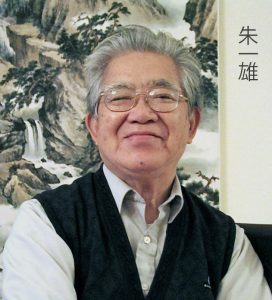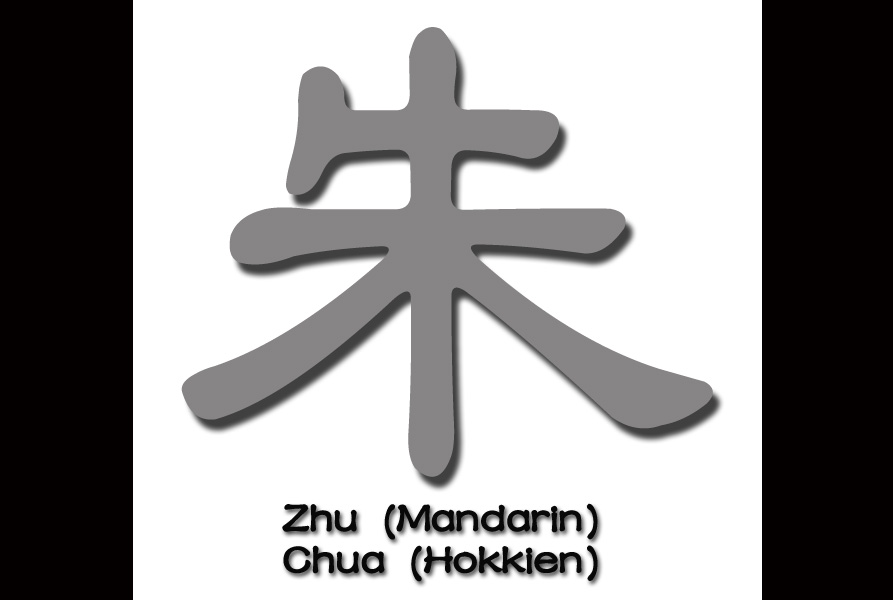First published in Tulay Fortnightly, Chinese-Filipino Digest 24, no. 22 (April 24-May 7, 2012): 5.
Chu in Hokkien, Zhu in Mandarin, 朱ranks 27th among the Chinese in the Philippines. In China, it ranks 13th, mainly because Zhu is the imperial surname during the Ming Dynasty (1368-1644).
China’s emperors had tens or even hundreds of wives and concubines. During the 276 years of reign, the Ming Dynasty had 17 emperors in all. Other major surnames in China, such as 李 (Li, ranks on top), 劉 (Liu, fifth), 楊 (Yang, sixth), 趙 (Zhao, eighth) are all surnames of emperors of different dynasties.
The founding emperor of Ming Dynasty, Zhu Yuan Zhang (朱元璋), came from the grassroots; he was a monk and beggar who became China’s ruler in 1368. The ancestor of 朱 was Cao Xie (曹挾), an heir of the legendary Emperor Zhuanxu (顓頊).
Cao Xie was conferred at a place called Zhu (朱) in Shandong province by the first emperor of Zhou (周) Dynasty, Zhou Wu Wang (周武王), who reigned during 1066-1063 BC. Cao became the first king of State Zhu which he built there. State Zhu was destroyed by State Chu (楚) during the middle of the Warring State Period (475- 221 BC).
State Zhu’s nobles adopted the name of the state as their surname (邾) and eventually dropped the right half of 邾 and became 朱.

Among the Chinese in the Philippines with surname Zhu, I-Hsiung Ju (朱一雄) was a very unique man. First, he was not from Fujian province as most of the Chinese in the Philippines were. Neither was he from Guangdong province. He was born in Jiangsu province to which Shanghai belonged in 1923. Second, he was also not a businessman as many Chinese here were, but he was a fine arts professor.
He got his BA in Chinese Arts and Literature from Xiamen University in 1947, BA Fine Arts in Painting at the University of Sto. Tomas in 1951, and MA in History in 1968 also in UST.
He taught fine arts at the University of the East and became the most popular professor there. He later moved to the United States and became professor and later emeritus professor of Arts in Washington Lee University in Lexington, Virginia.
After his retirement, he fostered Chinese-American cultural understanding through organizing trips to mainland China and Taiwan.
He passed away on March 17, 2012.





